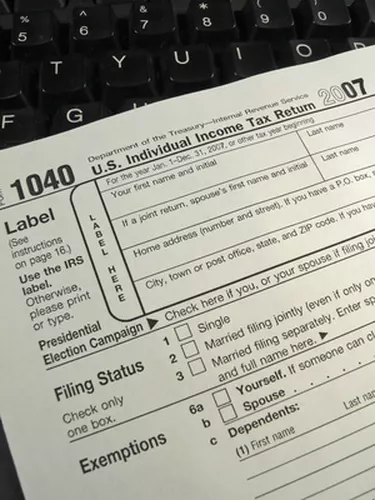
As an investor, you need to build a widely diversified portfolio that includes stocks, bonds and fixed income assets. You also need to rebalance that portfolio from time to time, and that can mean selling stocks and incurring taxes. Understanding how taxes impact your stock holdings make it easier to decide which stocks to sell.
Short-Term Capital Gains
Video of the Day
If you have held your stocks for less than a year, any capital gains generated from the sale of those shares are taxed at the higher short-term capital gains rate. That means that you pay capital gains at your normal tax rate, instead of the lower rate assessed to long-term capital gains. You can review your tax return from last year to estimate your tax bracket and determine how much you might owe if you sold those shares now instead of waiting until you have held them for at least a year.
Video of the Day
Long-Term Capital Gains
If you have held the stocks you sold for at least a year, you have long-term capital gains, and you will therefore pay a lower tax rate on those shares. When you contemplate selling stock it is always a good idea to first determine when you purchased those shares. If you can hold those shares for at least a year you can save money on taxes and lower your taxable income.
Employer Stock
If stock options or employer stock are part of your compensation, cashing out those shares of stock or exercising your stock options impacts your total income and your taxes. If you hold stock options or participate in an employee stock purchase plan, it is a good idea to consult with a CPA or tax expert before making your decision. If you do exercise those options or sell your employer stock, you will receive a statement early in the year showing the amount of the transaction. You can then use that information to prepare your taxes.
Tax-Deferred Accounts
If you hold your stocks in a tax-deferred account like a 401k or IRA account, you can cash those stocks out without any current tax implications. With a 401k or IRA, you only pay taxes when you actually start taking money out of the account in retirement. That means that any capital gains and earnings you receive along the way are not subject to current taxation. If you plan to sell stock, always check to see whether that stock is held in a personal taxable account or a tax-deferred one before taking any action.